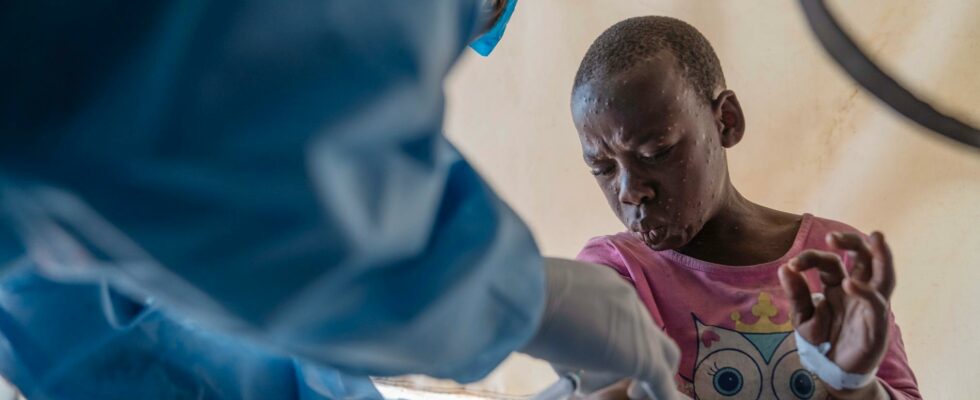unsaveSave
expand-left
full screen A child with suspected mpox receives treatment at a healthcare facility in Munigi in eastern Congo-Kinshasa. Photo: Moses Sawasawa/AP/TT
10 million vaccine doses are needed to stop the mpox outbreak in Africa. But despite the WHO declaring a state of emergency, the vaccine has not yet reached Congo’s children.
– We have zero vaccines available in eastern Congo, says Lindis Hurum at Doctors Without Borders.
The vaccines needed to stop the outbreak of mpox in Africa are delayed. Several countries, including Japan, the United States and France are ready to donate vaccines.
The EU, through Hera, the European Commission’s authority for preparedness and response to health crises, will also deliver 215,000 vaccine doses to Congo-Kinshasa, which has 90 percent of the cases.
But no vaccines have yet reached conflict-affected eastern Congo-Kinshasa, confirms Lindis Hurum, who is the coordinator of Doctors Without Borders’ efforts in the region.
– There are many processes underway, but we have not yet received any vaccines. Not even those who work at the frontline receiving sick people have been vaccinated, she says.
Next week at the earliest
The first shipments are expected to arrive next week at the earliest, says the Africa Centers for Disease Control and Prevention (CDC), which coordinates the distribution of mpox vaccine in Africa. According to the WHO, there is a need for 10 million doses in Africa alone, but currently only a fraction is available.
A collaboration with the Danish pharmaceutical company Bavaria Nordic, which manufactures the only approved mpox vaccine, is said to be able to generate two million vaccine doses before the end of the year – and another eight million doses in 2025.
But Hurum, who was on the ground in eastern Congo-Kinshasa during the 2018-2020 Ebola outbreak, says huge challenges remain – even if the vaccine is delivered.
– It will not be possible to vaccinate the entire Congolese population. We still don’t know where the epidemic is at its greatest and where we should deploy the greatest resources, she says.
Seven million on the run
Several years of conflict in eastern Congo-Kinshasa have forced nearly seven million people to flee. Just over a million people live in informal refugee camps on the outskirts of the city of Goma. Many sleep directly on the ground with only a plastic sheet over them, says Hurum.
– Stopping the spread of infection in the camps is impossible. Those who live there have neither soap nor water, nor enough space to be able to keep their distance, she says.
Getting the vaccine doses out to conflict-affected areas is both a security risk and a logistical challenge, says Hurum. Bad roads mean that vaccines sometimes have to be transported by motorbike.
– At the same time, it is important to remind that it is not mumps that kills the most, but common diseases such as cholera, measles, malaria and complications in connection with childbirth, says Hurum.
